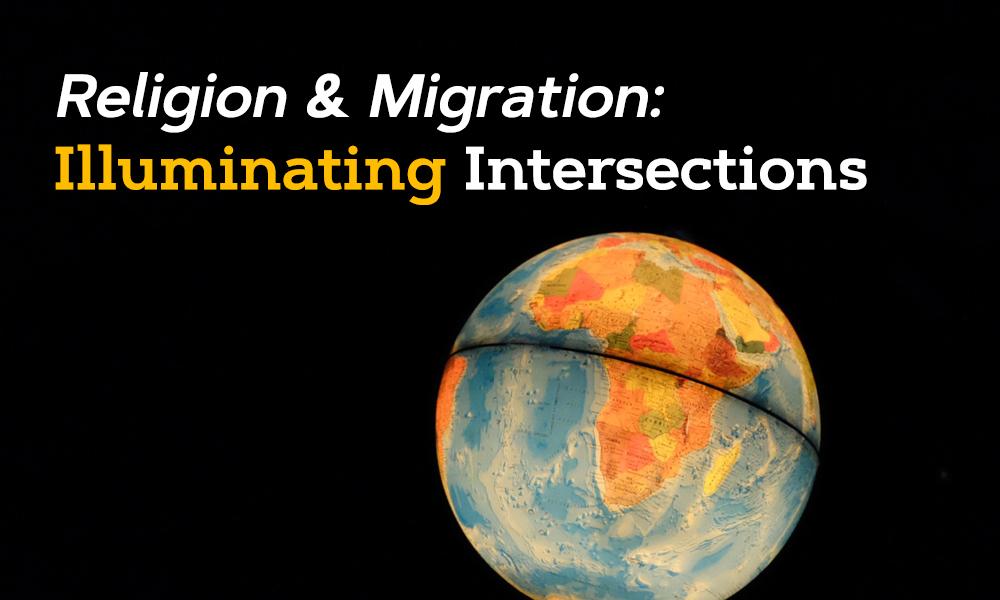JMU hosts religion and migration conversations
College of Arts and Letters
This Thursday, Oct. 3rd, national law and policy experts and immigrant community activists in the Shenandoah Valley will come together at James Madison University to illuminate the surprising intersections between religion and migration in hopes of cultivating deeper understanding.
JMU religion professors Christina Kilby, an expert in Buddhist Studies, and Eric Trinka, an expert in Biblical Studies, co-organized this event in hopes that attendees will come away better able to trace the contours of religion in a world that is on the move. Event details.
1. What can attendees expect from this panel?
Kilby: A dynamic conversation. There will be a rich range of perspectives—from different geographical roots, but also different professional angles on immigration and resettlement and activism. A few different faith perspectives will be part of the mix, as well.
2. What is the connection between the topics of religion and migration?
Trinka: Migration has always been a part of human history and religion has been there for a very long time, at least the last 10,000 years, if not longer. And they've often been in creative interplay with one another. The data shows that religion is incredibly important to most migrants, and so to neglect it when we're talking about migration is to do a huge disservice to them as we try to be advocates on their behalf.
3. Why is it important to discuss this intersection today?
K: We now have the highest number of displaced people on record in human history, so movement is dominating our human reality, and it's a deep part of human experience. This is the time to make sure we're thinking about the full human dimensions of what migration is and how our communities can continue to flourish and be sustainable.
T: The impact of global human movement now is more proportionally felt than it has been in the past. There are all kinds of changing variables, and we're seeing religion come in to meet the challenges of these changing variables in different ways than we have before.
4. How are Harrisonburg and JMU uniquely positioned to be the setting for this conversation?
K: Right now about 17% of Harrisonburg’s population is foreign born. And we've been upheld as a model of successful immigrant integration and healthy community dynamics around immigration. As for JMU, we have this incredibly rich interdisciplinary collection of faculty working on themes that relate to migration or immigration. We also have outstanding students involved in research in the local community. What we're all working on in different ways is this question of human well-being and human flourishing.
The free event is open to the public and begins at 5:15 pm in Madison Union Ballroom on Thursday, October 3rd. RSVP on Facebook.
